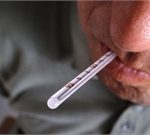
New research suggests that having an underlying health condition might be one of the most significant risk factors for developing a severe case of COVID-19. Scientists at the U.S. Centers for Disease Control and Prevention took a look at a group of U.S. adult COVID-19 patients and found roughly three-quarters of those who wound up in the hospital had at least one underlying health issue. For 457 patients who were admitted to intensive care, 78% had other health conditions, while 71% of 732 patients admitted to the hospital, but not intensive care, had at least one other health issue. The mortality data showed an even stronger correlation: Among all hospitalized COVID-19 adult patients with complete information on underlying conditions or risk factors, 184 deaths occurred. Of those, 173 (94%) involved patients with at least one underlying condition, according to the CDC’s COVID-19 Response Team, led by researcher Nancy Chow. Those conditions include diseases that strike people of all ages, including asthma and diabetes, along with heart disease and lung disease. Unfortunately, those very conditions are quite common among Americans, the researchers noted: In 2018, the prevalence of diagnosed diabetes among U.S. adults was just over 10%, while the prevalence of heart disease was 10.6% in 2017. Meanwhile, the prevalence of COPD (chronic obstructive pulmonary disease) among U.S. adults was almost 6% and the prevalence of… read on >






































